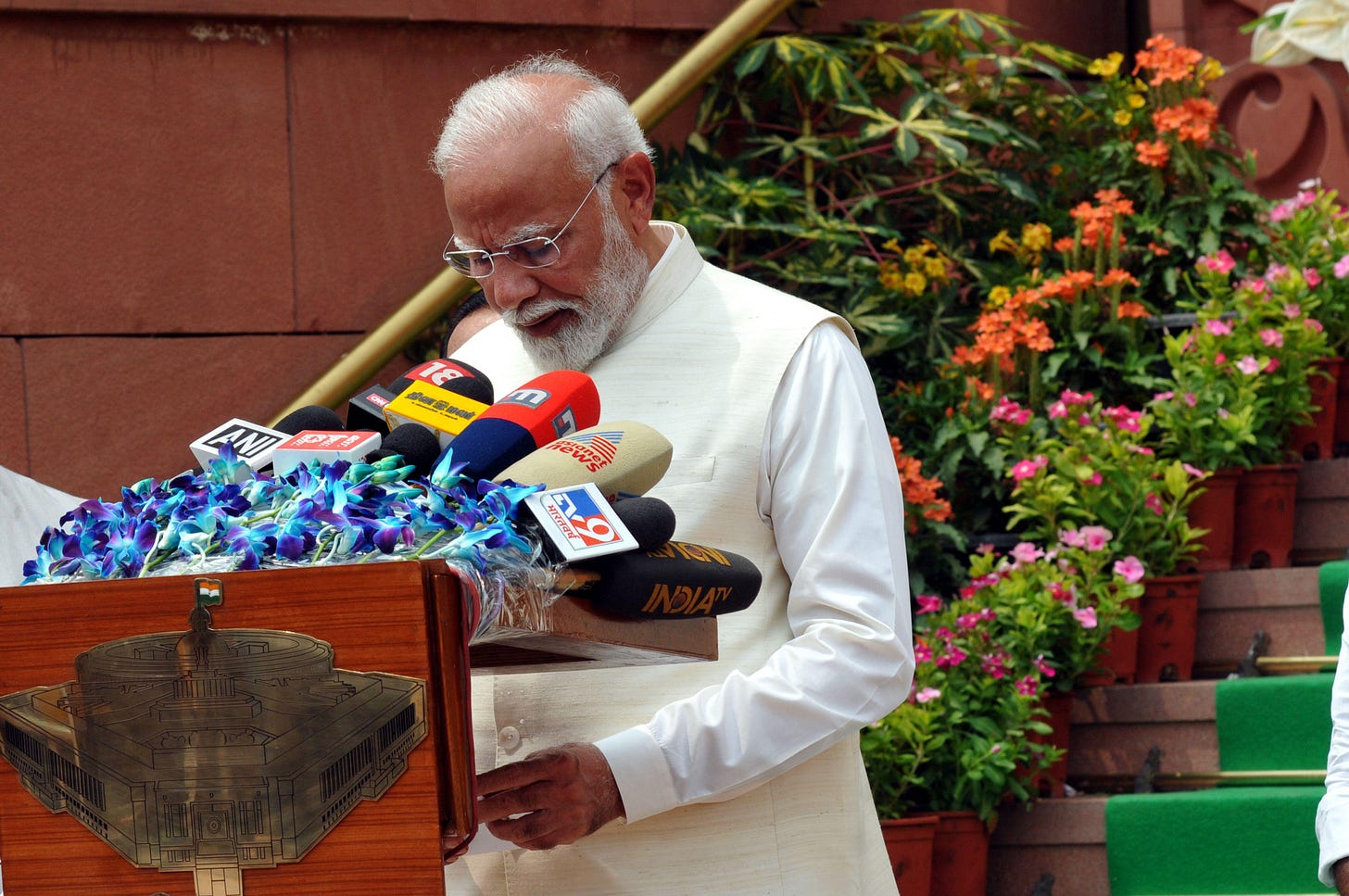Modi's Lacklustre Victory is a Win for Indian Democracy
BJ Sadiq surveys the aftermath of the BJP's failure to flatten all opposition in the Indian elections.

Earlier this month, in the gloaming darkness of 9 June, the air of Delhi still sultry from the day’s heat, India’s firebrand politician, Narendra Modi, flanked by guards on foot, steered his sparkling Rover slowly into the broad forecourt of the Rashtrapati Bhavan; the official residence of India’s President. The Rashtrapati Bhavan is a palace of gigantic dimensions, with rolling lawns at the back, sombrely shaded with a variety of old trees. Designed by British architect Sir Edward Lutyens in the early 20th century, the façade bears a perceptible mark of the city’s rich colonial past; its Romanesque columns and its hulking dome glittered with colours from the Indian flag. Modi however looked glum, his old sneering confidence was missing; yet he was a model of restraint and good behaviour as he trudged in his stiff white kurta along the red carpet, enjoining his palms in the Indian manner, and making his way up the regal staircase amidst roaring cheers from the crowd.
Moments later, he was sworn in as Prime Minister of India for an historic third term. He now becomes only the second leader in India’s history after Jawaharlal Nehru (India’s first Prime Minister) to win three consecutive terms. India’s President, Droupadi Murmu, administered the oath of office. Nearly 8000 guests attended the ceremony, including many foreign dignitaries, heads of state from neighbouring countries and lavishly dressed Bollywood celebrities. But Modi did not look like the dynamo of energy that he usually is, in spite of a beaming countenance. He did not look the sort of politician who, for the past decade, has kept his country in a state of constant befuddlement; a truly galvanic public speaker, possibly the greatest of his age, his speeches are often crammed with bombast, and radical outbursts aimed against India’s prominent Muslim minority.


